To filter by Last Name or Research Type , simply type the first few letters of the last name of the person or the Research type you're looking for and then click the "Apply" button.
| Faculty | Research Highlights | |
|---|---|---|
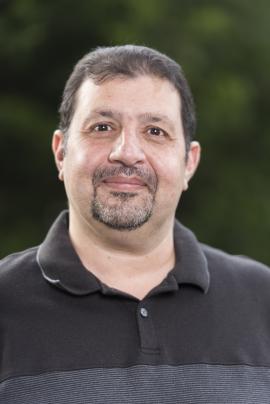 |
Alani, Adam Associate Professor Targeted Drug Delivery 503-346-4702 |
Alani’s lab research focuses on the design of nanoscale drug delivery systems for therapeutic and diagnostic applications. The research involved design and synthesis of nanoscale formulation, characterization, toxicity, efficacy and pharmacokinetics evaluation both in vitro and in vivo models. |
 |
Brown, Kevin Associate Professor Gene Regulation and Disease 541-737-8251 |
I am interested in complex biological systems: networks of genes and proteins, neurons in the brain, and words in spoken and written language. My theory of Sloppy Models has important implications for systems in ecology, chemistry, neuroscience, physics, and even atmospheric science. |
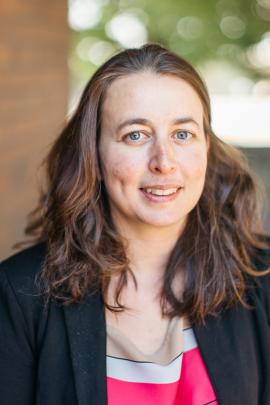 |
David, Maude Assistant Professor Gene Regulation and Disease 541-737-0629 |
The David Lab focuses on new biocomputing methods to utilize publicly available datasets to analyze microbiome sequencing data. The lab also works on how the gut microbiota can modulate behavior via the gut-microbiome-brain axis. We use an interdisciplinary approach including the use of mouse models, in vitro cell culture, anaerobic bacteria culture, bees (!) and machine learning to tackle those questions. |
 |
Filtz, Theresa Associate Dean of Academic Programs Gene Regulation and Disease 541-737-5802 |
Dr. Filtz's general research interest is in signal transduction. As a pharmacologist, her lab has studied post-translational regulation of signaling proteins and transcription factors associated with T cell leukemias and atrial fibrillation, and the effects of natural products on heart cells. |
 |
Indra, Arup Professor Gene Regulation and Disease 541-737-5775 |
The Indra laboratory is investigating the mechanisms underlying the crosstalk between skin-cells and role of microenvironment in atopic-dermatitis, vitiligo, tumor-heterogeneity and in metastatic melanoma. We discovered different factors that regulate UV-induced melanocyte/epidermal stem-cell survival, proliferation and migration. The anti-cancer, anti-oxidant, anti-inflammatory and anti-ageing effects of bioactive natural compounds are further studied. |
 |
Indra, Gitali Associate Professor (Sr Res) Gene Regulation and Disease 541-737-9416 |
We are studying tissue regeneration and wound-healing using mice-modelsand 3D-human bioprinted skin. We utilize biodegradable nanofibers loaded with growth-factors, anti-microbial peptides and exosomes for efficient healing of chronic wounds in diabetes and hypoxia. Anti-cancer, anti-aging and anti-oxidant effects of bioactive compounds from hemp, hops and meadow foam are being investigated. |
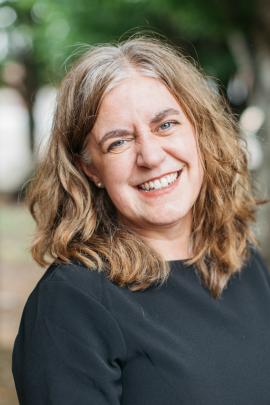 |
Ishmael, Jane Professor Drug Discovery 541-737-5783 |
Dr. Ishmael’s research focuses on the use of new chemical entities from marine organisms and fungi as tool compounds to disrupt cell signaling and proteostasis in human cancer cells. With a special interest in glioblastoma, our goal is to identify and validate novel druggable targets for the treatment of human disease. |
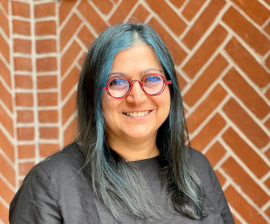 |
Kioussi, Chrissa Professor and Chair of Pharmaceutical Sciences Gene Regulation and Disease 541-737-2179 |
The Kioussi laboratory is interested in defining the gene regulatory networks involved in muscle development and energy balance systems. Their studies serve as the foundation for development of future strategies and pharmacological interventions that influence the maintenance and differentiation potential of cell populations in patients with disrupted metabolic fuel homeostasis and muscle atrophy. |
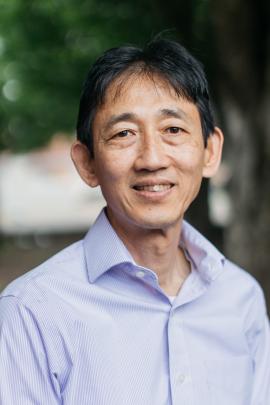 |
Mahmud, Taifo Professor Faculty 541-737-9679 |
Taifo Mahmud’s research interests focus on natural product-based drug discovery and development. His group employs a multidisciplinary approach that utilizes cutting-edge technologies to produce novel pharmaceuticals. Some recent accomplishments of his group include discovering new families of enzymes and developing antimalarials, anti-cancers, and sunscreens through genetic engineering or synthetic biology. |
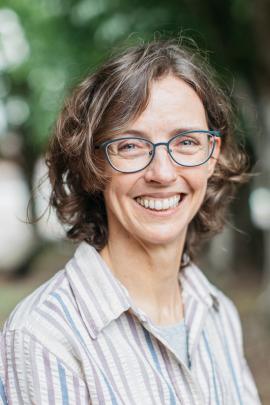 |
McPhail, Kerry Professor Faculty 541-737-5808 |
Uncommon organisms adapted to specific habitats and at habitat interfaces are rational sources of specialized metabolites with important biological properties. These natural products, including from cyanobacteria, stromatolites, sea squirts, and salamander guts, may serve as biomedical research tools or starting points for new disease treatments. |
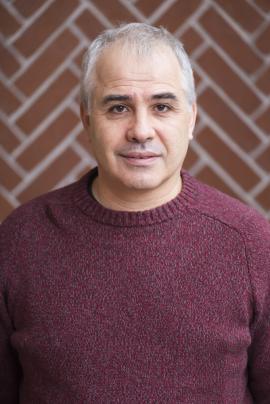 |
Morgun, Andriy Associate Professor Gene Regulation and Disease 541-737-8047 |
Our efforts are focused on the understanding how the interplay between host and microbiota contributes to pathogenesis and treatment of diseases such as type 2 diabetes, NASH, IBD, immunodeficiency, and cancer. This is a highly collaborative effort involving advanced causality inference and network analyses of multi-omics data coupled with gnotobiotic animal models, observational and interventional (i.e. clinical trials) studies in patient populations. |
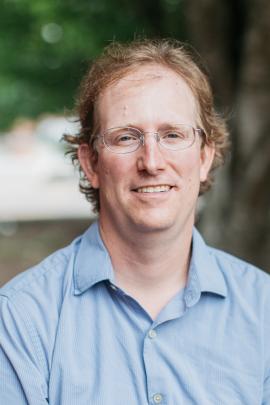 |
Philmus, Benjamin Associate Professor Drug Discovery 541-737-9396 |
The Philmus lab’s research centers on bioactive natural products (aka secondary metabolites) from bacteria with a focus on cyanobacteria (photosynthetic bacteria). We develop synthetic biology protocols, bioinformatics programs, and analytical chemistry methodologies to identify, isolate and study these compounds with the potential to serve as drug leads to combat cancer and microbial infections. |
 |
Proteau, Philip Emeritus Faculty Emeritus Faculty 541-737-5776 |
My research focuses on the chemistry of natural products, including structure elucidation, biosynthesis and synthetic medicinal chemistry. My current projects include the discovery of new hassallidins, antifungal cyclic peptides produced by cyanobacteria, and the synthesis of a small fungal metabolite to revise a structure. |
 |
Sahay, Gaurav Professor Targeted Drug Delivery 503-346-4698 |
Sahay lab is developing state of the art lipid-based nanoparticles for effective delivery of mRNA based vaccines and therapeutics. We design, characterize, and formulate nanoparticles and study their intracellular delivery mechanisms. Currently, our lipid nanoparticles are deployed to deliver genes/genome editors for the treatment of CF, retinal degeneration and COVID-19. |
 |
Sikora, Aleksandra Professor & Director of Diversity, Equity and Inclusion Drug Discovery 541-737-5811 |
We take multidisciplinary approaches to develop therapeutic interventions against sexually transmitted infection, gonorrhea. Gonorrhea affects millions of people globally and has serious consequences on reproductive and neonatal health. Gonorrhea outcomes are especially devastating in sexual, gender, racial, and ethnic minorities and resource-limited countries. To develop vaccine(s), we apply proteomics-driven antigen discovery and identified candidates are assessed in vitro and in mouse model. The second focus is drug discovery through high-throughput screening of small molecule inhibitors that target central players in bacterial physiology and pathogenesis. |
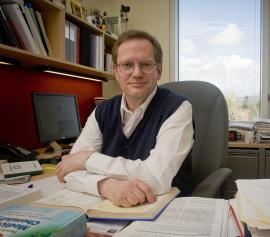 |
Stevens, Fred Professor and Associate Dean for Research Drug Discovery 541-737-9534 |
Research in the Stevens laboratory is aimed at determining the role and function of vitamins and dietary phytochemicals in human health and disease. His pioneering work on the hop polyphenol, xanthohumol, has resulted in 40 papers and created a market for xanthohumol used in the management of inflammatory bowel disease. |
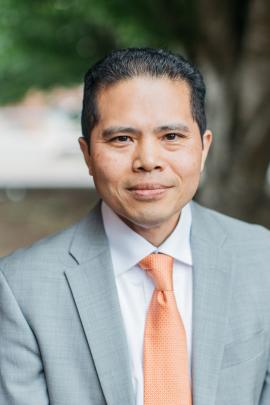 |
Sun, Conroy Associate Professor Targeted Drug Delivery 503-346-4699 |
Our laboratory investigates the interface of material science and biology to develop novel drug delivery and molecular imaging platforms. This interdisciplinary research leverages advanced chemistry techniques, bioengineering, and strong clinical collaborations to develop experimental therapeutics and new imaging modalities. In particular, this work exploits the unique capabilities of nanomaterials to improve the efficacy of conventional cancer treatments. |
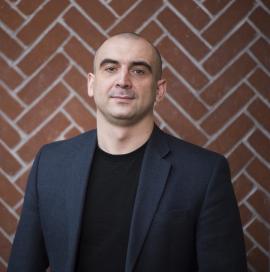 |
Taratula, Oleh Professor Targeted Drug Delivery 503-346-4704 |
Our research focuses on novel nanomedicines for imaging and treatment of cancer, endometriosis, and other diseases. We are developing multifunctional nanoplatforms for fluorescence-guided surgery, intraoperative phototherapy, magnetic hyperthermia and gene therapy. Our primary objective, which is currently funded by four NIH grants, is to translate the developed nanoplatforms into the clinic. |
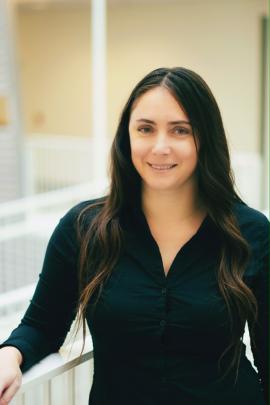 |
Taratula, Olena Associate Professor (Sr Res) Targeted Drug Delivery |
Our research utilizes an interdisciplinary approach toward the development of effective nanomaterials-based imaging and therapeutic agents, particularly for cancer, endometriosis, and placenta-related diseases. This includes the development of photo-theranostic agents for use in image-guided therapies. The main objective is to assist with accurate early diagnosis/visualization of tissue of interest using innovative nano-imaging probes, with subsequent immediate treatment. |
 |
Van Breemen, Richard Professor Drug Discovery 541-737-5078 |
Research in the van Breemen laboratory concerns the identification of natural products that help maintain optimal health, prevent cancer, and prevent neurological degenerative diseases. Our research integrates the analytical tool of mass spectrometry into drug discovery, metabolism, disposition, bioavailability, and pharmacokinetics, and extends from basic science to clinical trials. |